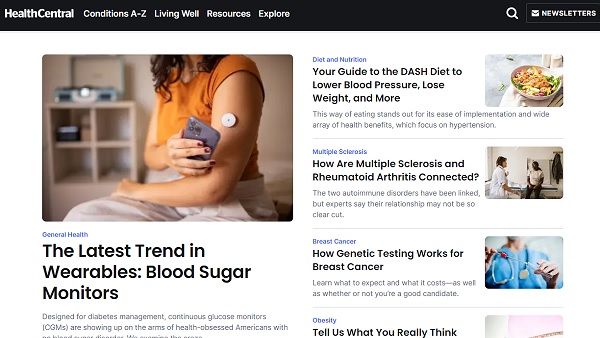
HealthCentral and the Skin Cancer Foundation (SCF) today announced the launch of the Skin Cancer in People of Color partnership, a collaboration committed to heightening awareness of skin cancer risks in people of color and the issues and inequities that hinder prevention, protection, and early detection in BIPOC (Black, Indigenous, and People of Color) communities.
Just How Sun-Protected Is Your BIPOC Skin?, the first in the quarterly series, offers practical, actionable expert guidance on how BIPOC can better understand skin cancer in darker skin tones, how best to protect themselves, and how to monitor any skin changes.
Upcoming features, including immersive and interactive content and in-depth coverage, will highlight longstanding barriers to care, including the lack of dermatologists in underserved communities, and the myths and misinformation that contribute to de-emphasized prevention and delays in diagnosis and care for people with darker skin tones.
“The Skin Cancer Foundation is committed to raising awareness about skin cancer risk for people of color, and we are pleased to collaborate with HealthCentral on this important effort,” said Becky Kamowitz, interim Executive Director of the Skin Cancer Foundation. “This partnership, alongside the Foundation’s new Love Your Skin campaign, will bring the public vital information from top experts in the field and empower people to be proactive about skin cancer prevention and early detection.”
Although less likely to experience skin cancer, BIPOC are also less likely to survive it. In a 2019 study from the Centers for Disease Control and Prevention (CDC), the five-year survival rate for melanoma in non-Hispanic Black Americans was 66 percent, compared with 90 percent for white people. People of color may not be made aware of the risk, and doctors may miss the signs of skin cancer in darker skin tones, delaying diagnosis.
“At HealthCentral, we share the Skin Cancer Foundation’s commitment to addressing these unacceptable statistics, and we’re proud to join forces to shine a light on these inequities,” said Jo-Ann Strangis, Chief Content Officer of HealthCentral Corp. “By leveling the playing field for all people with chronic and serious illness, we can raise awareness of diseases, including skin cancer, that are misrepresented and misunderstood in different communities.”
This original content series, produced by HealthCentral, will feature interviews with BIPOC affected by skin cancer as well as advice from top dermatologists and SCF experts who specialize in skin cancer in people of color. The series will be featured throughout HealthCentral.com and SkinCancer.org, in HealthCentral and SCF newsletters, and on respective social media platforms from both organizations.
Future topics will include:
- The dangers of living in a “derm desert,” which will focus on how the lack of access to dermatologists in underserved communities is exacerbating skin cancer disparities
- A poll of readers on skin cancer risk awareness
- A photo-rich feature on how melanoma appears on skin of color
- An immersive multicultural guide to help BIPOC identify possible suspicious skin changes, the steps to take to get help, and how to manage their health if they’ve been diagnosed
- Self-care for BIPOC skin during skin cancer treatment
“The issue of skin cancer in BIPOC communities has long been overlooked and underappreciated,” said Strangis. “Together with the expertise of the Skin Cancer Foundation, our mission is to offer content that empowers communities to thrive.”
About the Skin Cancer Foundation
The Skin Cancer Foundation saves and improves lives by empowering people to take a proactive approach to daily sun protection and the early detection and treatment of skin cancer. The mission of the Foundation is to decrease the incidence of skin cancer through public and professional education and research. Since its inception in 1979, the Foundation has recommended following a complete sun protection regimen that includes seeking shade and covering up with clothing, including a wide-brimmed hat and UV-blocking sunglasses, in addition to daily sunscreen use. For more information, visit SkinCancer.org.
About HealthCentral
HealthCentral Corporation operates leading digital platforms that serve patients living with chronic illness, their care partners and health professionals who care for them. HealthCentral Corporation’s award-winning destinations include HealthCentral, MedCentral, Patient Power, OBR Oncology, TheBody, and TheBodyPro.











